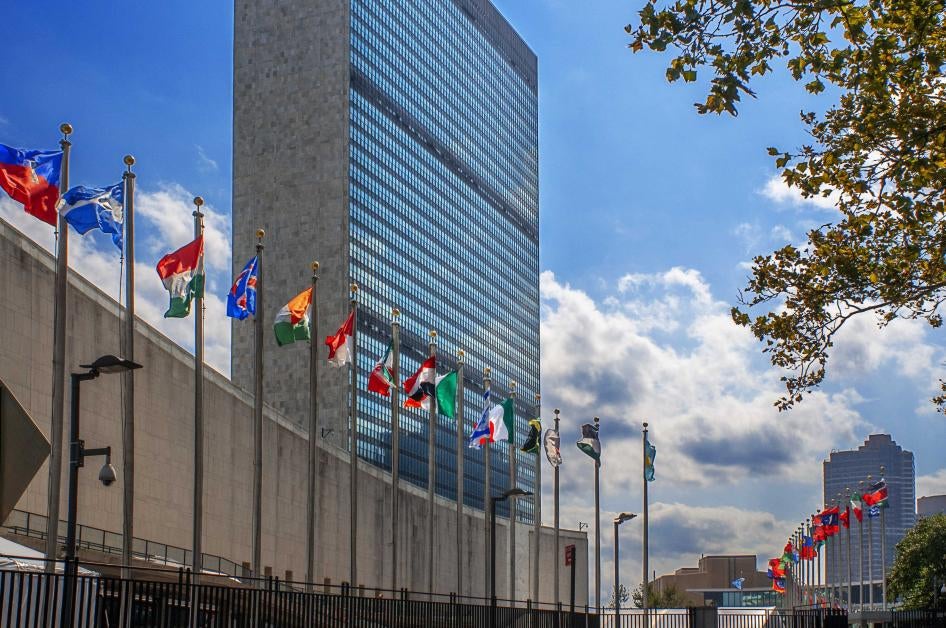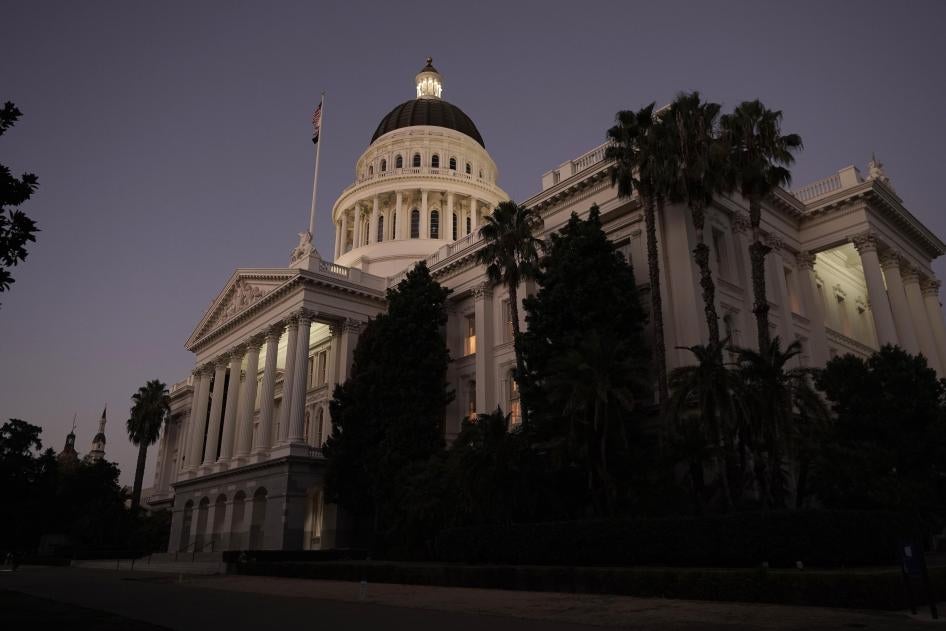Heavy Lies the Crown: Daily Brief
- New UN Rights Chief Takes Office;
- Quietly Choking to Death;
- California, You Must Be Dreaming;
- Take Note;
- Overwhelmed by Reader Requests;
- Name That Podcast! ;
- Quote of the Day: Global.
By Andrew Stroehlein. Contact me at DailyBriefTeam@hrw.org and Twitter @astroehlein.
Heavy Lies the Crown
It may not be the change of top leadership others are talking about right now, but in the realm of international human rights, it’s the main buzz.
Volker Türk has become the new UN High Commissioner for Human Rights, having been approved by the UN General Assembly yesterday to replace Michelle Bachelet, whose term ended August 31.
He starts with a lot on his plate, perhaps most immediately the need to follow up Bachelet’s strong report on the Chinese government’s possible crimes against humanity in Xinjiang.
But the list of critical issues hardly ends there. The conflict-related abuses in Ukraine and Ethiopia; the brutal crackdown in Myanmar; racism in the United States; rights issues stemming from the climate crisis and digital technologies… take your pick.
Is Türk up to the job?
Since 2019, Türk has served as UN under-secretary-general for policy in the executive office of UN Secretary General António Guterres, who appointed him to the new role. Previously, Türk was assistant high commissioner for protection in the Office of the UN High Commissioner for Refugees in Geneva.
On the one hand, having years of experience inside the UN system and having support from the top of it could have advantages. But there is also concern Türk may be too much of an inside candidate and thus too unwilling to rock the UN boat by speaking out.
Calling out abuses openly is essential for any high commissioner to be effective in putting pressure on offending governments. It’s really the only power the office has, in fact.
Quiet diplomacy on human rights almost never works to end abuses, and Türk must be ready to take on even the most powerful governments.
Publicly.
Quietly Choking to Death
It’s all around us. It’s the single biggest environmental threat to human health. And it kills some seven million people every year.
Yet we don’t seem to talk much about air pollution.
Sure, in some places, the conversation is unavoidable. In Bosnia and Herzegovina, for example, where reliance on wood and a particularly dirty type of coal smogs up cities and towns, the problem is too obvious to ignore.
But globally?
The World Health Organization estimates that 99 percent of us live in locations with air pollution levels that are above WHO thresholds designed to protect human health. It’s caused by the burning of fossil fuels, forest fires, waste burning, and other industrial activities, as well as natural factors. But compared with other public health emergencies, air pollution gets scant attention.
Where is the discussion about a killer that’s taken more of our lives than the Covid-19 pandemic over the last two years?
California, You Must Be Dreaming
A new law in California supposedly aims to help unhoused people, but in reality, it’s a coercive measure doomed to failure.
The Community Assistance Recovery and Empowerment (CARE) Court Program, allows for involuntary “referral” by family, police, and others that puts a person under the jurisdiction of the new CARE Court. It targets those with schizophrenia spectrum and other psychotic disorders.
However, because Black and Brown people are frequently over- and mis-diagnosed with these conditions, it will disproportionately affect them.
These are the same groups most often denied access to voluntary health care, and due to discrimination in housing, employment, and policing, make up a greatly disproportionate number of unhoused people.
“The so-called ‘CARE Court’ is not about care at all,” my colleague Olivia Ensign, senior US program advocate, says.
“It plays on prejudices against people who are unhoused and living with mental health conditions to create a coercive system of court-ordered treatment, when we know that involuntary treatment is ineffective and inhumane.”
Take Note
(curated today by Lisa Maier)
- Afghan refugees pushed back by Tajikistan authorities (The Guardian)
- Sri Lanka: government appointing alleged human rights abusers as ministers (HRW)
- France denies participation in Rwanda genocide (VOA)
- After UN report implicates Chinese government in crimes against humanity: What comes next? (Sophie Richardson in Just Security)
- Prosecution of independent news site Mada Masr journalists in Egypt (HRW)
- Russian meddling in the Balkans: Putin says Kosovo, Kosovo, Kosovo (Der Spiegel, English)
- Today is the International Day to Protect Education from Attack, and people are tweeting from around the world about it
Overwhelmed by Reader Requests
I know, I know… I’m behind on responding to your emails and Twitter pings.
And it’s all my fault. I asked readers to email me and contact me on Twitter with suggestions for Daily Brief stories (and questions for our new Asia Director), and now, some great ideas are flowing in. A lot of them.
Just in the last few days, you’ve sent me recommendations concerning – in no particular order – China, Nicaragua, Myanmar, Turkey, Vietnam, Iran, and many others. I’ve also had some thoughtful questions about how we “rank” various countries (short answer is we don’t do rankings, but I’d like to give a longer answer to explain).
It’s great to see the response so far, and I’ll be getting to some of these in the Daily Brief next week. Do keep the ideas coming, and I ask for your patience as we go.
Name That Podcast!
Human Rights Watch will soon be launching a new podcast, and we’d like your help…
Hosted by my colleague, Birgit Schwarz, the podcast will be a deep dive into a different human rights issue every week. The show will be global in outlook and human in approach, with a focus on the voices of activists from around the world.
What will the new podcast be called? We don’t know yet.
We’ve been brainstorming for a couple months now, but unfortunately, some of our initial ideas for names seem to have already been taken by other podcasts out there.
So, have you got any ideas? What would you call a human-rights-centered podcast?
Please email me or contact me on Twitter with your suggestions.
Quote of the Day: Global
“The new UN high commissioner for human rights should neither seek nor expect a honeymoon period from UN member states. What’s needed by the millions of people around the world whose rights are being violated every day is an advocate in their corner who will take on abusive governments large and small without fear and without hesitation.”
Tirana Hassan, HRW’s interim Executive Director.

